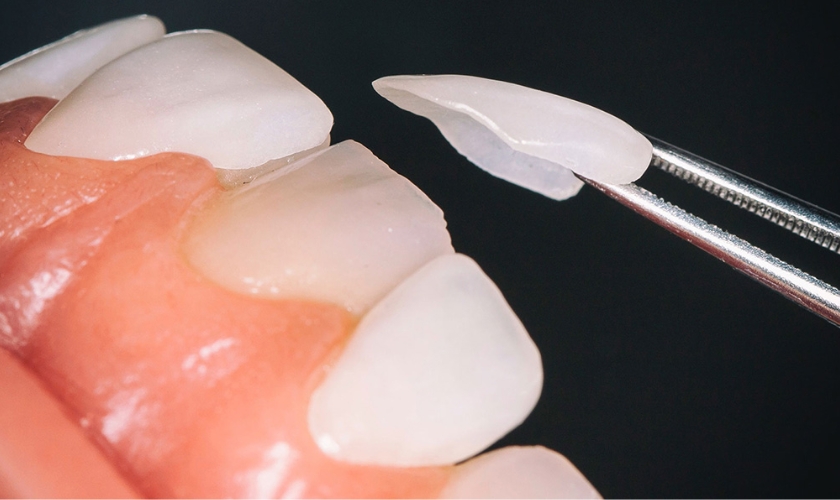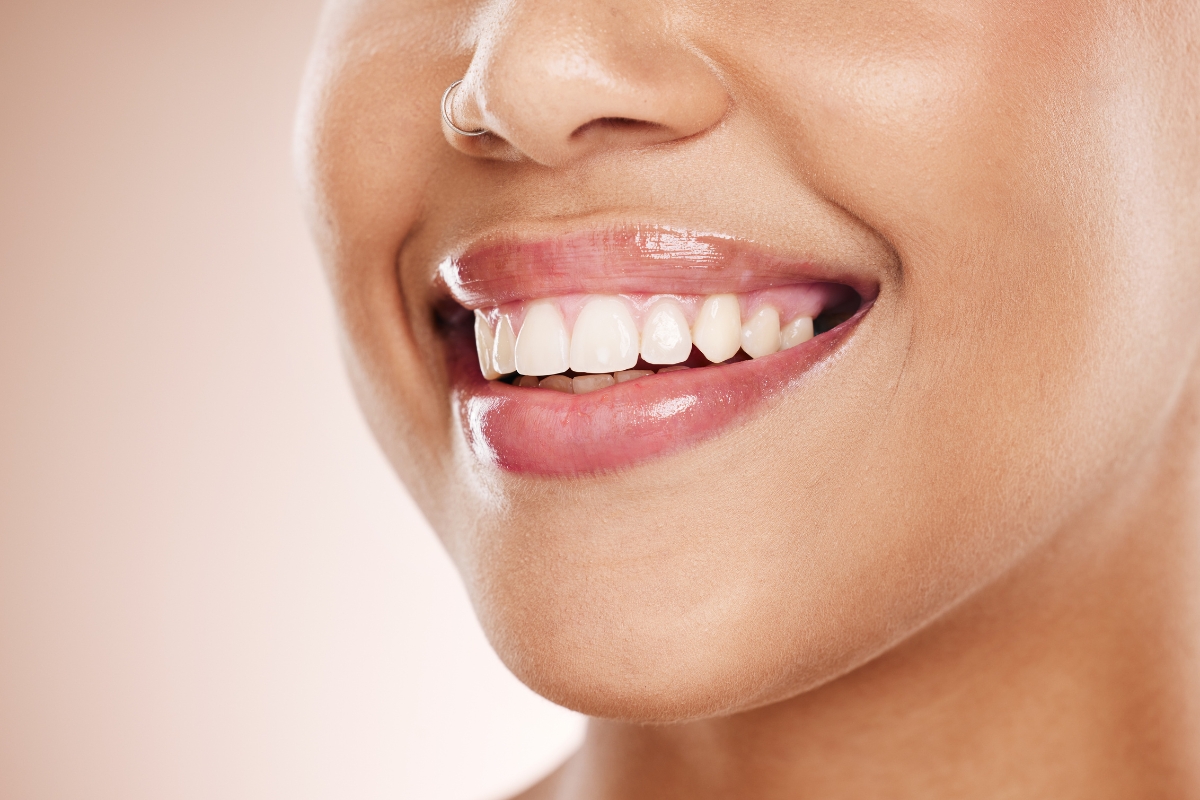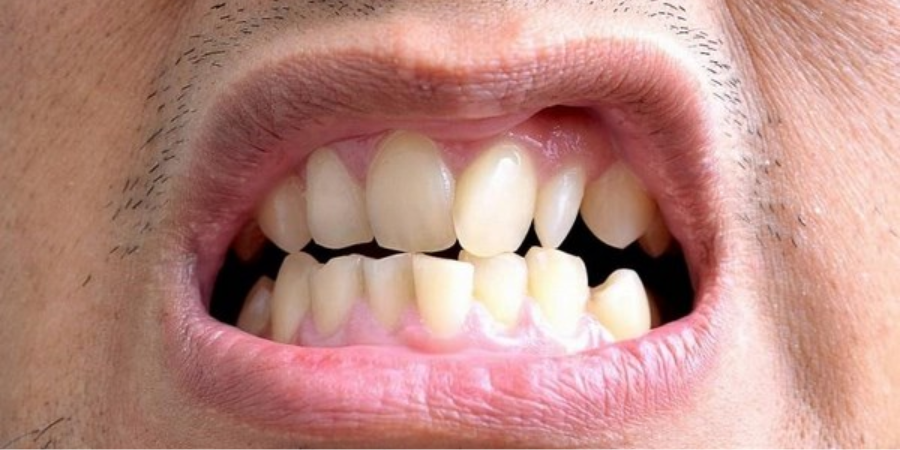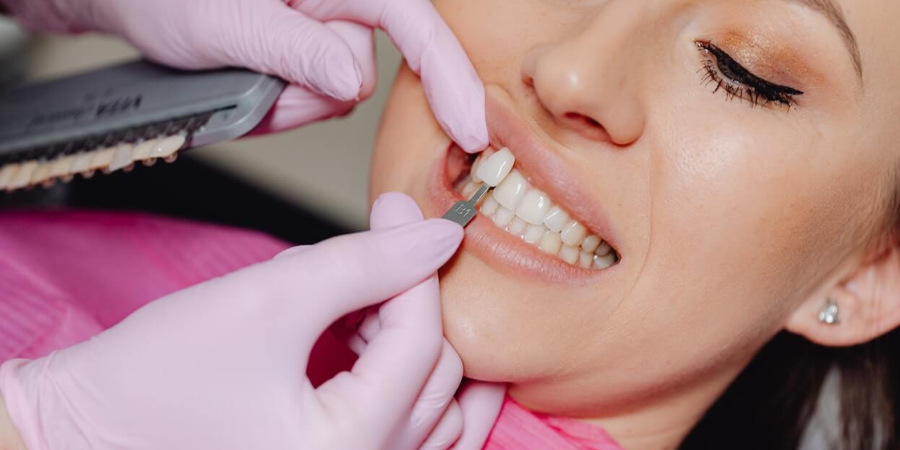
Veneers are a popular cosmetic dental solution that can transform your smile. Whether you have stained, chipped, or misaligned teeth, they can help improve your appearance. But have you ever wondered what happens to your teeth under veneers? Understanding this can help you make an informed decision before undergoing the procedure.
In this blog, we will explain the process, what it does to your teeth, and how to care for them once they are in place. So, if you have veneers in Newton, KS, keep reading.
How do Veneers Work?
Veneers are thin, custom-made shells designed to cover the front surface of teeth. They are typically made from porcelain or composite resin and bonded to teeth to improve their appearance.
The Process of Getting Veneers
Getting veneers is a multi-step process. Here’s what you can expect when you choose them:
- Consultation: We evaluate your teeth, discuss your goals, and create a custom treatment plan.
- Tooth Preparation: A small amount of enamel (usually 0.5 mm) is removed from the surface of your teeth to make room for them.
- Impression and Design: We take an impression of your teeth and send it to a lab where your veneers are custom-made.
- Bonding: Once your veneers are ready, we bond them to your teeth using a strong adhesive, ensuring they are secure.
What Happens to Your Teeth During Veneer Preparation?
The process of applying veneers involves minimal alteration to your natural teeth. However, it’s important to understand that some changes are necessary to achieve the best results.
Enamel Removal
In order to apply veneers, a small portion of your enamel must be removed. This step is essential because:
- It makes room for the veneer, so it fits seamlessly on your tooth.
- It creates a rough surface for better adhesion, ensuring your veneers last longer.
While this may sound concerning, the amount of enamel removed is minimal and does not compromise the health of your teeth.
Impact on Tooth Sensitivity
After the enamel is removed, some patients may experience increased tooth sensitivity. This sensitivity is usually temporary and can be managed with desensitizing toothpaste or by avoiding very hot or cold foods.
Do Veneers Damage Your Teeth?
Many people worry that veneers will damage their natural teeth. Rest assured, when done correctly by a trained dentist, it does not harm your teeth. Here’s why:
- Preservation of Tooth Structure: The amount of enamel removed is so minimal that it doesn’t affect the overall strength or function of your tooth.
- Long-Term Protection: They actually protect your teeth by covering imperfections and preventing further wear or damage.
- Reversibility: Though veneers are not considered reversible, your natural teeth remain intact underneath.
How Long Do Veneers Last?
The lifespan of veneers depends on how well you care for them and the materials used. Typically, porcelain veneers can last between 10 and 15 years, while composite resin veneers may last 5 to 7 years.
Proper Care for Veneers
Maintaining your veneers is crucial for ensuring their longevity. Here’s how you can care for your veneers and your natural teeth underneath:
- Brush Twice Daily: Use a non-abrasive toothpaste to avoid scratching the veneers.
- Floss Regularly: This helps prevent gum disease, which could affect the veneers’ fit.
- Avoid Hard Foods: Chewing on ice or using your teeth to open packages can chip the veneers.
- Wear a Mouthguard: If you grind your teeth, a custom mouthguard can protect both your veneers and natural teeth.
Are Veneers Permanent?
As mentioned earlier, veneers are not reversible. Once the enamel is removed, it cannot grow back, and the teeth will always require some form of coverage. However, this doesn’t mean veneers are a permanent solution that lasts a lifetime. Eventually, they may need to be replaced, but with proper care, they will last for many years.
How Veneers Improve Your Teeth’s Appearance?
One of the biggest advantages of veneers in Newton is the aesthetic improvement they provide. Here’s what you can expect:
- Whitening Effect: Veneers are resistant to stains from coffee, tea, and smoking, keeping your smile bright.
- Shape and Alignment Correction: Veneers can improve the shape and alignment of your teeth, giving you a straighter smile without the need for braces.
- Chip and Crack Coverage: Veneers can hide minor imperfections like chips and cracks, providing a smooth, even surface.
Common Myths About Veneers
There are several myths surrounding veneers, and it’s important to separate fact from fiction. Here are some of the most common misconceptions:
- Myth: Veneers make your teeth weaker.
- Fact: When done correctly, veneers actually strengthen the tooth by providing a protective layer.
- Myth: Veneers look unnatural.
- Fact: Modern veneers are custom-made to match the color, shape, and size of your natural teeth for a realistic appearance.
- Myth: Veneers are only for cosmetic purposes.
- Fact: Veneers can also improve teeth function by restoring worn enamel and protecting against future damage.
Veneers can be a life-changing cosmetic dental solution for those looking to improve their smile. While the process does involve some changes to your natural teeth, these changes are minimal and designed to enhance your oral health and the aesthetics of your smile. With proper care and regular dental visits, your veneers can last for many years, giving you a beautiful, confident smile.


